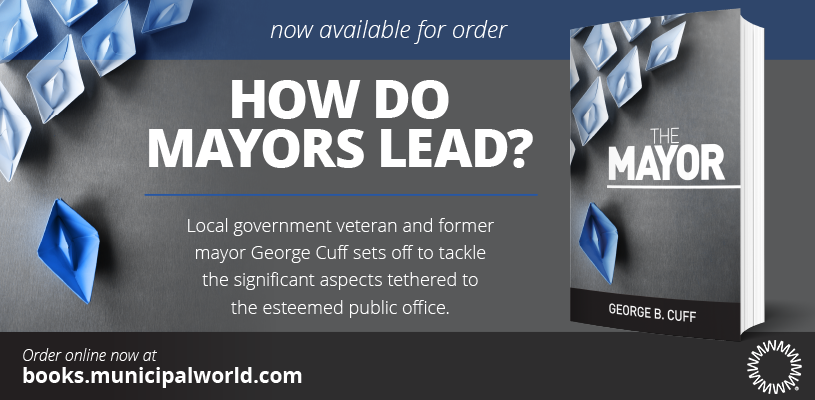8 strategies for municipal crisis communications

A mass shooting. An embezzling scandal. A mall collapse. A train derailment. A flood. A member of council who finds themselves on the wrong side of the law.
You can’t control whether or not your municipality will be hit with a crisis. You can, however, control the manner in which you choose to deal with it. The word “choose” is an important one, because the way you respond in the midst of a crisis is the result of a series of leadership decisions.
Will you make a point of communicating with residents, the media, and other stakeholders in a prompt, continuous, and transparent fashion until the crisis has been resolved? Or will you adopt a siege mentality, bury your head in the sand, take down the municipal Facebook page, and pray that things blow over?
Crisis Management Guidelines
With these questions in mind, here are some tips and guidelines your municipality can implement as part of a sound crisis management and crisis communications strategy:
1. Make sure it’s really a crisis you’re dealing with
To determine whether you’re facing a genuine crisis, see if the event or situation meets the following criteria:
- Is it adversely impacting your ability to conduct business as usual and to serve your residents?
- Does it have the potential to tarnish the municipality’s image, reputation, or brand?
- Could it threaten the safety of employees or residents?
If you answered yes to any or all of these questions, you’re likely dealing with a crisis.
2. Contain the situation and minimize speculation
When a crisis hits, you need to respond in a speedy manner. Your phone lines will be ringing. Social media will be atwitter. The rumour mill can kick into high gear. You won’t have all the answers in the earliest stages. But, a quick statement that you’re aware of the situation, you’re looking into it, and you’ll be providing continuous updates can help contain the situation and establish your municipality as a key source of credible information.
3. Demonstrate credibility through words and actions
Throughout the duration of the crisis, all eyes will be on your municipality and its response. Truthfulness, transparency, and credibility will be key. Your words and actions need to be in alignment. When Maple Leaf Foods was dealing with a listeria outbreak that killed 22 people in 2008, the company faced the situation head-on, took responsibility, took all of its products off store shelves, identified the source of the contamination, and took the required steps to fix it. All of this was done in a public, transparent manner – and Maple Leaf recovered from the crisis.
4. Communicate through one spokesperson
Having multiple spokespeople is not only confusing to a public that’s hungry for answers, but can also lead to potentially conflicting messages, particularly in a situation that’s evolving quickly. Ideally, you want to designate a spokesperson who has experience dealing with the media, someone who has been media trained on at least one occasion, and whose title and role demonstrates that the municipality is taking the situation seriously.
5. Demonstrate genuine concern for those affected
The late Maya Angelou once said, “I’ve learned that people will forget what you said, people will forget what you did, but people will never forget how you made them feel.” This is also true when it comes to crisis communications. When people are inconvenienced or put in harm’s way, they want to know that they’re being listened to and that they are your top priority.
In all of your communications throughout the crisis, show real concern and empathy for those affected.
6. Provide accurate, timely information
During a crisis, residents and other stakeholders will want to have access to frequent updates and instructions. They may want to hear an apology. With social media, you have access to tools that allow you to communicate with your stakeholders at scale and with unprecedented speed. Don’t wait until a crisis strikes to learn how to use these tools.
7. Alleviate employee concerns
When developing your crisis response, don’t forget about one of your most important audiences – your employees. They, too, are residents of your community. They, too, have families, property, and concerns for their personal well-being. However, you also need to rely on them to help the municipality get through this difficult circumstance. Be sure to keep staff members apprised with the latest accurate information throughout the duration of the crisis. Having access to these updates will help them feel valued, respected, and empowered as your municipality works to resolve the situation.
8. Avoid adopting a siege mentality
Whatever you do, please resist the temptation to shutter the windows and wait for things to “play themselves out.” The story will not just go away on its own. The media can (and will) build its own story without you and the results will likely be negative for your municipality. In the absence of credible updates from the municipality, the rumour mill will run rampant. Speculation will increase. And, the public, feeling as if it’s being ignored in its time of need, can grow frustrated or angry and share those negative feelings on social media.
If you take only one idea away from this article, I hope it is this: In the event of a crisis, adopting a siege mentality does not work. Speed, truthfulness, and transparency are the best approach when it comes to communicating with your target audiences during a crisis situation. Own up to the situation; apologize if necessary; and show the public what you’re doing to make it better. MW
A version of this article was published in Municipal World, October 2014
✯ Municipal World Insider and Executive Members: You might also be interested in the full version of this article or in Tim Conrad and Emily Epp’s article: You’re not ready: 10 tips to prepare your municipality for emergency communications. Note that you can now access the complete collection of past articles (and more) from your membership dashboard.
Warren Weeks sold his first newspaper to his grandmother at the age of five, was Wayne Gretzky’s PR handler for a day, did media relations in Walkerton during the E. coli crisis, and has media trained thousands of spokespeople across Canada. Connect with him on Twitter at @warren_weeks.
Related resource materials:



